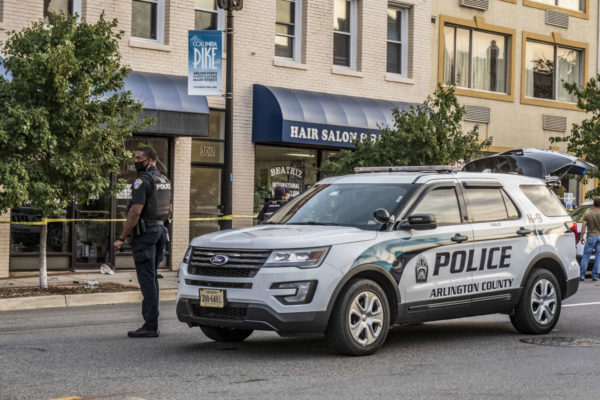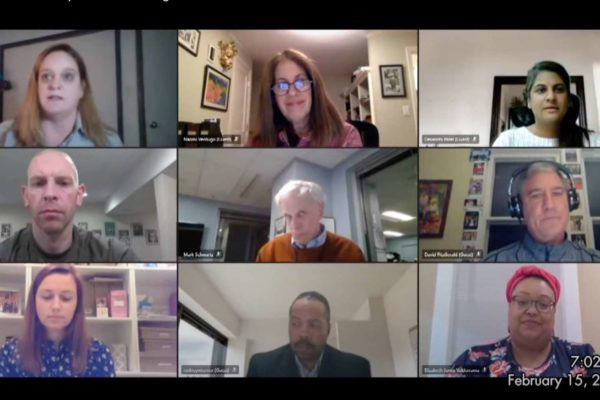A group formed by Arlington County after last summer’s nationwide racial justice protests is recommending myriad reforms to Arlington County Police Department operations.
Leading up to the formation of the Police Practices Work Group, locals were protesting police violence against unarmed civilians and the county had received a number of complaints about police conduct, as well as calls for police reform.
On Monday, 15 Arlington County residents presented the highlights of their report — which included more than 100 recommendations — to County Manager Mark Schwartz. They suggested a model for a civilian review board, changes to how police enforce traffic violations and provide mental health services, and lastly, alternatives to the police for resolving disputes.
“It’s an excellent piece of work,” Schwartz said.
All the recommendations can be found in the final report.
Assuming the county establishes a police review board, members said it should be one made of civilians with an independent auditor presiding. The review board would have up to 15 Arlington County residents and would be closed to current and former ACPD officials. The board would have the authority to conduct independent investigations and compel the release of information.
These authorities would not be used lightly, said Rodney Turner, a committee member.
“We will try to do things without getting a subpoena first and we will look to ACPD reports to see if any investigation by the oversight body is necessary,” he said.
Another group looked for ways to improve road safety without hurting underprivileged communities. It recommended, among other things, more automated traffic enforcement cameras and a sliding payment scale for fines.
But “technology is not the panacea,” member Kathleen McSweeney said. Privacy remains a concern and the county should be sensitive to camera placement so certain communities do not feel targeted, she said.
Implementation of the sliding scale would likely require action by the state legislature, said Allison Carpenter, who chaired the traffic enforcement group.
Additionally, the county should delegate the response to most mental health crises to clinicians and volunteers, said Naomi Verdugo, the chair of the mental health subcommittee. Police would only respond as a last resort or if the risk of violence is high.
Verdugo also said the county’s Crisis Intervention Center should be staffed with more clinicians and advertised as a place where police, emergency services and family members can drop off people experiencing crises. The report recommends upping non-police security staffing at the center.
Finally, a group focused on ways to change Arlington’s “culture of calling 9-1-1,” and finding other ways of resolving disputes between neighbors.
Devanshi Patel, who chaired the alternative dispute resolution subcommittee, noted that many 9-1-1 calls are related to “suspicious activity,” which can take many forms. She recommended a private-public campaign focused on the importance of properly using 9-1-1 and choosing another hotline or resource in other circumstances.
Patel said the legal system needs to be reformed “from entry to exit,” especially to divert people from being detained unnecessarily.
“The focus should be placed on opportunities for ways to avoid criminal records because of collateral consequences not only to the person but also the community,” she said.
In the next few weeks, the county will receive an independent study from law enforcement expert Marcia Thompson, who examined ACPD policies and data on the use of force, training and supervision, body-worn cameras, recruitment and retention and internal affairs.
Image via Arlington County



